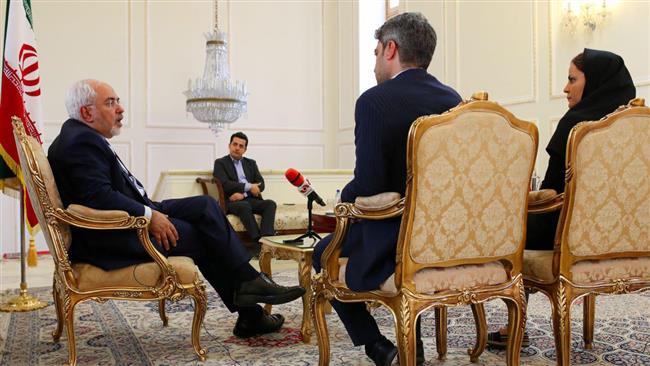Continuing Iran’s tactics of trying to detach the US from its partners, Foreign Minister Mohammad Javad Zarif has used the North Korea conflict to pursue American “isolation”.
Zarif said in an interview published Sunday, “The situation is very dangerous. I do not recall any time in my 40 years in politics when there was talk [of using nuclear weapons] in the international community.”
The Foreign Minister said the dispute over North Korea’s missile and nuclear tests had to be reached peacefully, with the avoidance of threats and pressure. But he quickly pivoted to Iran’s situation, where the US — citing Tehran’s own ballistic missile testing — has imposed new sanctions despite the July 2015 nuclear agreement.
Zarif indicated that the solution could no longer come through discussions with Washington, instead pointing to an Iranian effort to work with others such as European powers:
Some of the rhetoric that the US has adopted about the JCPOA since Mr. Trump took office has cast doubt about the US’s reputation as a [credible] negotiating partner. Other countries, too, feel that this administration is not trustworthy. The US’s own allies in Europe say that, too.
The comments continue the shift of the Rouhani Government since the US Congress adopted the new sanctions, citing Iran’s alleged support of “terrorism” and human rights record as well as the ballistic missile, and the Trump Administration toughened its language despite confirming Iranian compliance with the nuclear deal.
President Rouhani, having held to the line of a “proportionate response”, began speaking of the possibility of withdrawal from the agreement if the US persisted with the sanctions. However, his priority has been on trying to separate the European Union, British, France, and Germany — all of whom are involved in the nuclear deal with Tehran — from Washington.
Zarif continued the effort in Sunday’s interview. He said that while Tehran had the option of withdrawal, another was to “create conditions in which America’s withdrawal from or non-performance of the JCPOA [Joint Comprehensive Plan of Action] would lead to the US’s isolation”.
IAEA Inspections of Iran’s Nuclear Facilities Double
The International Atomic Energy Agency has doubled inspections of Iran’s nuclear facilities since 2012.
The IAEA conducted 402 site visits and 25 snap inspections in the year since the Iran-5+1 Powers nuclear deal was implemented in January 2016.
“The JCPOA represents a clear gain for nuclear verification,” IAEA Director General Yukiya Amano said on September 5. “Iran is subject to the world’s most robust nuclear verification regime.”
The agency will continue “carrying out complementary accesses to sites and other locations,” Amano said on Monday. “The nuclear-related commitments undertaken by Iran under the JCPOA are being implemented.”
While cooperating with the IAEA, Iranian officials have said that they will not accept inspections of military sites. The Trump Administration, through UN Ambassador Nikki Haley, has pushed the agency for such visits.
See Iran Daily, August 28: Tehran Rejects US Pressure for Inspection of Military Sites

